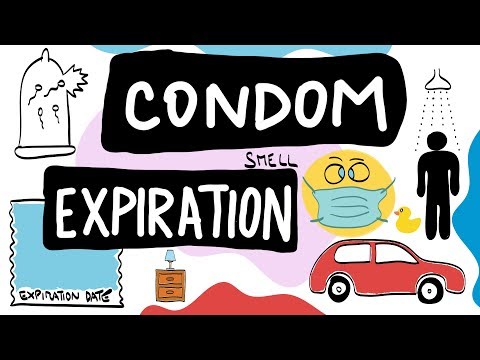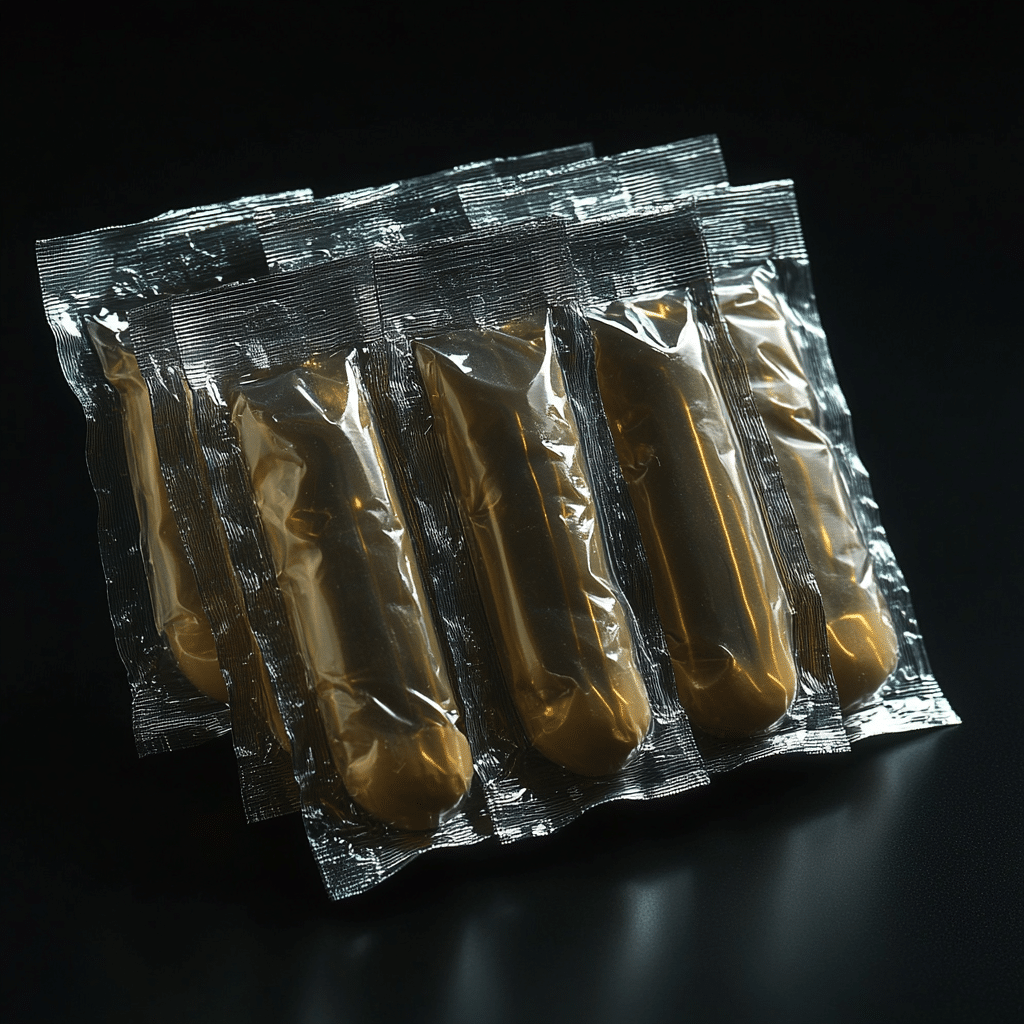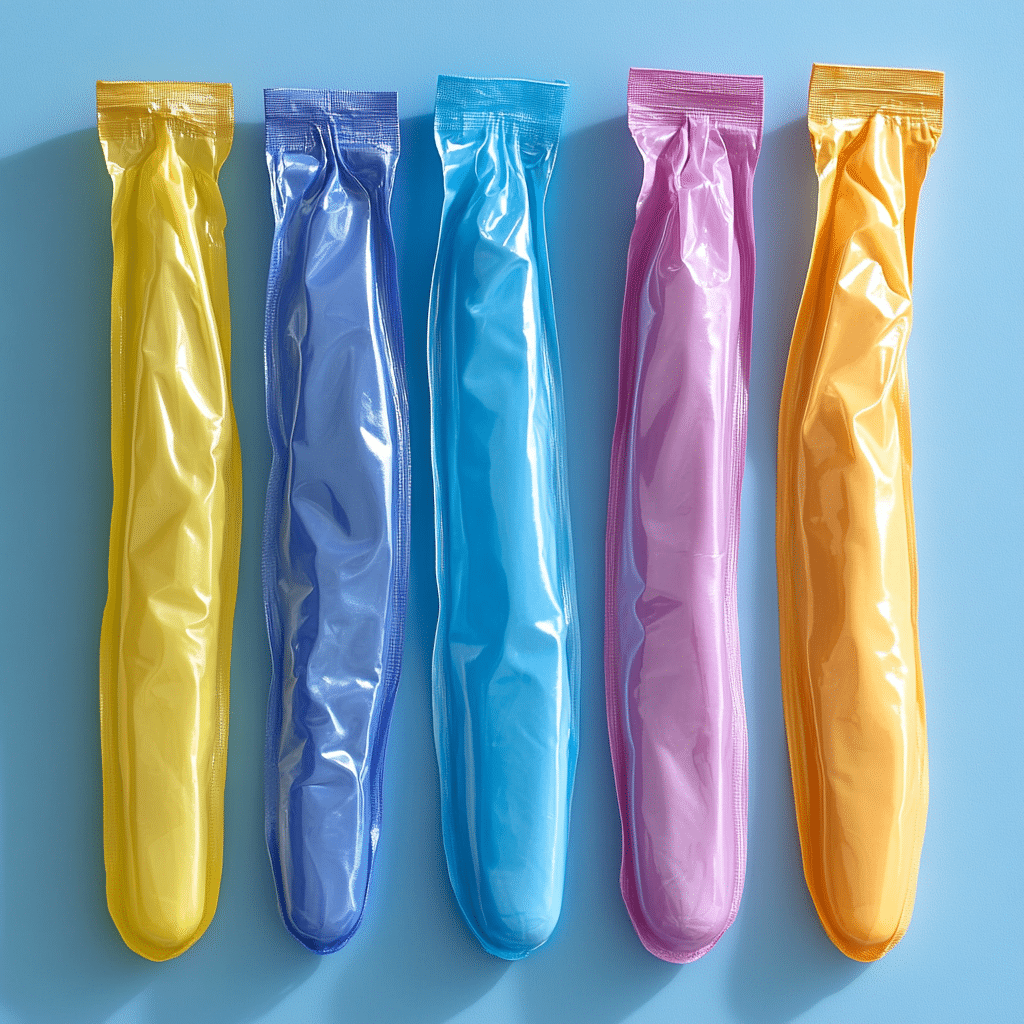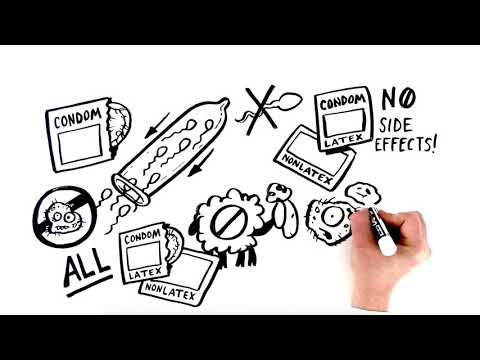When it comes to the question of do condoms expire, it’s not just a simple yes or no. Understanding condom shelf life and safety can make a significant difference in your sexual health. Whether you’re trying to get shredded in the gym or maintain a successful relationship, ensuring you’re making informed choices about sexual health products is vital. It’s about structure and strength—just like lifting weights to build muscle. Condoms are no different; they’ve got their own set of rules to follow, and knowing them can help you dodge potential mishaps.

The Shelf Life of Condoms: Key Factors to Consider
Condoms are perishable products, typically manufactured from latex, polyurethane, or polyisoprene. Each of these materials has unique durability features and shelf lives to ponder. Generally speaking, condoms have a shelf life ranging from three to five years from the date they were made. For female condoms, you’re looking at about five years of effectiveness. But here’s the kicker: storage conditions play a massive role too. If your condoms have been exposed to heat or sunlight, their lifespan might be significantly reduced. Trojan recommends checking that expiration date printed right on the packaging for the most accurate guidance.
Where you store your condoms is just as crucial as when you buy them. Here’s a life tip: do NOT keep condoms shoved in your wallet or car. Those high or fluctuating temperatures can break them down faster than anything. The last thing you want is to trust a condom that’s been baking in a hot car or crushed under a pile of receipts. Place them in a cool, dry spot instead. You wouldn’t leave your expensive supplements out in the sun, would you? Treat your condoms with the same respect.
Lastly, keep an eye out for signs that a condom might be damaged. It’s pretty straightforward—a torn, discolored, or sticky condom should go straight in the trash. Remember, a condom that looks off is a huge red flag. Prioritize caution and always inspect your condoms before using them, because a ripped condom can lead to significant issues.

Top 5 Things to Know About Condom Expiry Dates
Always remember: the expiration date on the box isn’t just there for decoration! It indicates the time frame when the manufacturer guarantees maximum safety and efficacy. Using a condom past its expiration date can lead to greater risks, like breakage or leakage. So keep your game tight, folks—check those dates!
How you store condoms can be a game-changer in their longevity. Companies like Durex recommend keeping them in a cool, dry place away from sharp objects and sunlight. Sharp things, like jewelry or even your nails, could tear that precious barrier. Don’t make it harder for yourself; get it right from the start!
Before diving in, do a quick check-up on your condom. Look for tears, breaks, or any weird discolorations. A condom that appears slimy or sticky? That’s a huge sign it’s time to throw it out. A visual inspection can save you from potential problems down the road.
Not all condoms are created equal. Some brands are known for durability and extended shelf life. For example, SKYN specializes in non-latex condoms, often lasting longer than typical latex options. Their reputation for reliability makes them a solid choice when you’re stocking up.
If you’re feeling unsure about that old condom lying around, here’s a little trick: try the “water test.” Fill the deflated condom with water and watch for leaks. If it holds up, it’s still viable for use—just a handy tip to keep in your toolkit!

The Science Behind Condoms and Their Durability
Let’s dive a bit deeper into the science behind condom materials. Latex is popular for its flexibility and strength, but it tends to break down when it meets oil-based lubricants. If you’re a fan of that type of lubricant, consider polyisoprene condoms, which offer a safe and durable alternative, especially for people with latex allergies. Durex RealFeel, also made from polyisoprene, claims to provide excellent sensitivity while maintaining robustness.
Environmental factors matter, too. Excessive heat and humidity are kryptonite for your condoms. Studies indicate that prolonged exposure to those conditions weakens the structural integrity, which could lead to unexpected surprises when the time comes. Always think about how and where you’re storing those little life savers.
Besides the materials, it’s essential to understand that each condom is designed with reliability and safety in mind. Many brands are stepping up their game, incorporating better materials that withstand time and influence while still being comfortable.

Real-Life Implications of Using Expired Condoms
Now let’s talk consequences—because using expired condoms can lead to serious repercussions. We’re talking unintended pregnancies and STIs that can throw your life into a tailspin. Radical shifts in relationships and personal health can occur simply because someone neglected to check that expiration date. Anecdotal evidence showcases spikes in STI cases that stem from improper condom use, reinforcing that education is key for safer sex practices.
Let’s not forget the stigma tied to buying condoms. Many individuals, especially younger folks, might hesitate to purchase new ones out of embarrassment, leading them to use old or expired condoms instead. Our mission should be clear: we need to normalize conversations around sexual health and educate everyone about the importance of expiration dates.
In today’s world, where knowledge is power, dismissing the relevance of those little stamps on the package could seriously harm your health and your well-being. So, why take that risk? Get informed and take control of your sexual health!

The Future of Condom Technology
As we move forward, condom technology is eyeing some serious advancements. New innovations aim to extend shelf lives while simultaneously improving reliability and sensitivity. Some manufacturers work toward creating condoms that resist tearing while still feeling great—because who wants to sacrifice pleasure for safety?
Collaborations between health organizations and condom makers are gaining momentum, focusing on fostering education around proper condom usage. By doing so, we can dismantle the stigma surrounding the purchase of condoms and make informed discussions commonplace.
A shift in values regarding sexual health is happening, backed by better understanding and technology in the industry. Remember, knowledge isn’t just power; it’s a responsibility we all share to ensure healthier choices and experiences for ourselves and others.
In summary, realizing that condoms do indeed expire is crucial for being responsible about your sexual health practices. Stay educated about the shelf life and proper storage, and maintain awareness of advancements in the field. Empowering yourself and those around you with the right information promotes healthier choices. So, whether you’re at the gym getting those gains or discussing with a partner, recognize the significance of condoms, the risks of expiry, and the importance of being proactive in your sexual health journey.
Do Condoms Expire? Here’s What You Should Know
Understanding if do condoms expire is essential for safe practices. On average, standard condoms can last anywhere from three to five years, depending on material and storage conditions. So, don’t fret if you think you might have a ‘vintage’ box stashed away. Just take a glance at the package for that expiration date—though they can sometimes feel as reassuring as rumors about celebrity lives, like the saga of Gypsy Rose blanchard, it’s always best to check the facts first!
How to Spot Expired Condoms
If you find yourself questioning the longevity of a condom, keep an eye out for certain tell-tale signs. Expired condoms might lose their elasticity, and that’s a huge no-no when it comes to protection. Cracks or brittle textures can be as concerning as news about Chuck Norris dead rumors—both are signs that you shouldn’t move forward. In a pinch, if you’re unsure, it’s wise to just grab a fresh pack. You wouldn’t risk a mortgage down payment based on outdated advice, right?
Fun Trivia About Condoms
Did you know that latex condoms were first introduced in the 1920s? They’ve come a long way since then! As times changed, from nail color Ideas becoming popular fads to a variety of condom shapes and sizes becoming available, it’s clear how preferences evolve. Similarly, the right condom can make all the difference in your experience. Plus, just like discussions around Good Omens season 3 can spark chatter, the science behind condom technology often intrigues those curious about safe sex practices.
More interestingly, some brands are now making condoms from non-latex materials like polyisoprene. This better suits people with latex allergies, keeping everyone in the conversation safe. While it might be a stretch comparing these advancements to insights about What Qualifies a spouse For alimony, both ensure comfort and protection in their own ways! Now that you’re armed with knowledge about whether do condoms expire, an exciting and informed approach to your well-being is right around the corner.

How long do condoms last after expiration date?
Condoms can become less effective after the expiration date, but they don’t magically become unsafe the second that date hits. Still, using them after expiration is risky, as they can dry out and are more likely to break. It’s best to stick to fresh ones for safety.
How long do condoms last in the wallet?
Keeping condoms in your wallet for a long time isn’t a good idea. They could get damaged from sitting in there for weeks or months and may not be safe or effective anymore. It’s best to store them in a cool, dry place instead.
Can I use expired condoms for practice?
Using expired condoms for practice isn’t a great idea. They can deteriorate over time, which affects their strength and flexibility. You’d be better off using fresh ones to ensure you’re practicing safely.
When do condoms not work?
Condoms might not work if they’re not put on correctly, if they come into contact with sharp objects, or if there isn’t enough lubrication. It’s vital to follow the instructions and handle them with care to minimize risks.
Which condoms don’t expire?
No condoms don’t last forever, but some specialty condoms, like those made from polyurethane, may offer longer shelf lives. Still, even they have expiration dates, so always check before use.
Why do condoms dry out so fast?
Condoms can dry out quickly if they’re not stored properly or if they’re exposed to heat and sunlight. Keeping them in a cool, dry spot helps maintain their quality for longer.
Why do guys keep condoms in their wallets?
Some guys keep condoms in their wallets for convenience and to be prepared. But, carrying them around for too long might actually make them less safe, so it’s good to think about where they’re stored.
How long are Trojan condoms?
Trojan condoms come in various sizes and types, but they’re typically about 7.5 inches long. If you’re looking for specific dimensions, it’s best to check the box for exact sizes.
Where do parents hide condoms?
Parents might hide condoms in places like high shelves, inside bathroom drawers, or even in the garage. They’re generally trying to keep them out of reach or sight until they’re needed.
How to put condoms on correctly?
To put a condom on correctly, start by pinching the tip to remove air, then roll it down the length of the erect penis. Make sure it’s placed properly and rolled all the way down to prevent slippage.
Why are condoms not 100% effective?
Condoms are not 100% effective due to factors like incorrect use, breakage, or slippage. While they’re great at reducing risk, they’re not foolproof, so combining methods adds extra protection.
How much do condoms cost?
Condom prices can range from a few cents to a couple of dollars each, depending on the brand and where you buy them. Buying in bulk often helps save some cash too.
What is the #1 reason why condoms fail?
The number one reason condoms fail is improper use, like not putting them on correctly or using them past their expiration date. Following instructions carefully helps ensure they work as intended.
How effective is pulling out?
Pulling out can reduce the chance of pregnancy, but it’s not a reliable method. Pre-ejaculate can contain sperm and may still lead to pregnancy, so couples should consider more reliable birth control methods.
What are 100% ways to prevent pregnancy?
% ways to prevent pregnancy include abstinence, using permanent methods like sterilization, or using reliable birth control methods consistently and correctly, like pill or IUD.
Are expired condoms more likely to break?
Expired condoms do have a higher chance of breaking or failing, so it’s best to avoid using them. Fresh condoms are your best bet for safe use.
Do all condoms in a pack have the same expiration date?
All condoms in a pack usually share the same expiration date, which is marked on the box. It’s important to check that date before using any of them.
How often should you change condoms?
You should change condoms between different sexual acts. If you’re switching from vaginal to anal or vice versa, it’s best to get a fresh one to prevent infection and maintain effectiveness.
Do condoms go bad in the cold?
Condoms can go bad in the cold if they’re subject to extreme temperature changes. Keeping them in a consistent climate helps maintain their integrity for longer.


























